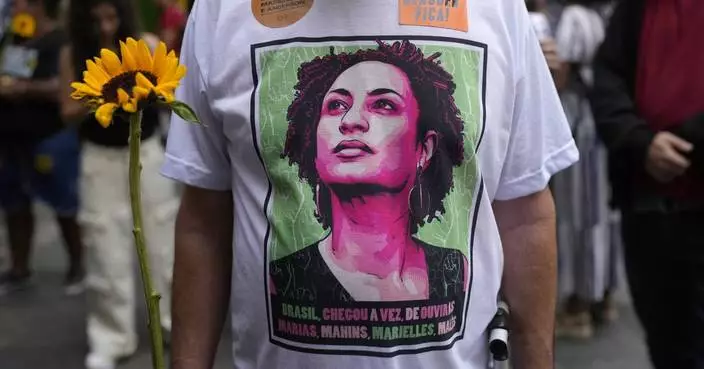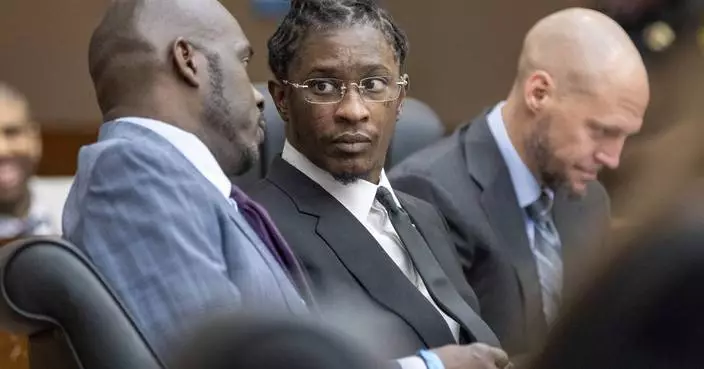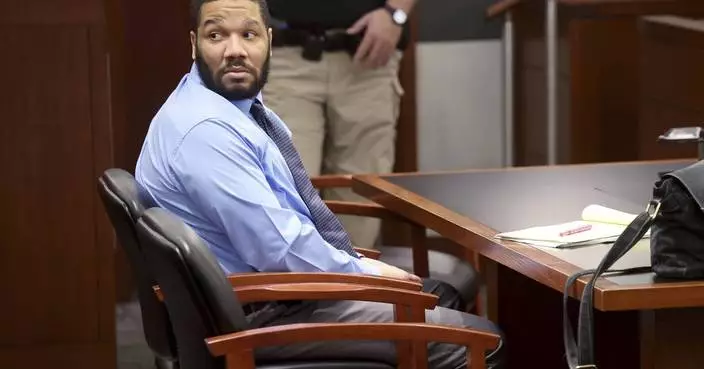WELLINGTON, New Zealand (AP) — A New Zealand judge is to decide whether the owners of an island volcano suffered a miscarriage of justice when their company was convicted of failing to keep visitors safe following an eruption that killed 22 tourists and local guides in 2019.
A three-day appeal by the owners' company ended Thursday. Justice Simon Moore told the High Court in the city of Auckland that he would reach a decision before the end of the year.
The company, Whakaari Management — run by three brothers who own the active volcano Whakaari, also known as White Island — was ordered in March to pay millions of dollars in fines and restitutions to the victims of the eruption, who were mostly U.S. and Australian cruise ship passengers on a walking tour.
Lawyers for the company filed an appeal against the criminal conviction the same month.
The case hinges on whether Whakaari Management — which granted access to the volcano to tourists and scientific groups, collecting fees for permits — should have been in charge of safety at the volcano site under New Zealand’s workplace health and safety laws.
Anyone in charge of a workplace must ensure management of hazards and the safety of all there, including at entry and exit points.
A lawyer for New Zealand’s workplace regulator, which brought the charges in a 2023 trial, told the court on Thursday that Whakaari Management’s entire business involved granting access to an uncontrollable natural hazard, and and that it should have commissioned its own risk assessments on whether tourists should be permitted there at all.
Prosecutor Kirsty McDonald agreed with the trial judge, saying the company “had a duty to ensure, as far as reasonably practicable, that the workplace it was granting access to was without risks to the health and safety of any person.”
However, lawyers for the company told the court this week that it had acted as a landlord, not a manager of operations on the site. Rachael Reed said the company did not run, direct or supervise the tours, and the operators were responsible for safety on the site.
The case has far-reaching implications and has already changed the laws governing New Zealand’s adventure tourism industry, which is often based around outdoor thrills on or around the country’s many natural hazards. Operators must now take all reasonable steps to inform customers of any serious risks.
The lawyers for the company said that if the conviction was allowed to stand, it would make other land owners reluctant to allow such activities to take place on their property — a suggestion rejected by the regulator.
White Island, the tip of an undersea volcano also known by its Māori name Whakaari, was a popular tourist destination before the eruption and was reached by boat or helicopter from the North Island’s Bay of Plenty.
There were 47 tourists and tour guides on the island in December 2019 when superheated steam blew, killing some instantly and leaving others with agonizing burns.
Survivors told the trial in emotional testimony that they had not been told the active volcano was dangerous when they paid to visit it. They were not supplied with protective equipment, and many were wearing clothing that made their horrific burns more damaging.
In his ruling, Judge Evangelos Thomas said Whakaari Management had failed to undertake a risk assessment despite knowing of an eruption three years earlier. He said the company should have sought expert advice about the dangers and either stopped the tours entirely or put controls in place.
Charges were brought by New Zealand’s workplace safety regulator against 13 organizations and people, including Whakaari Management.
Some pleaded guilty, including three companies that operated helicopter tours, one that operated boat tours, a scenic flight operator and the New Zealand scientific agency GNS Science. Charges against others were dropped.
Moore, the high court judge, was not required to release his findings immediately following Thursday’s end of hearings and did not set a definite date for his decision.
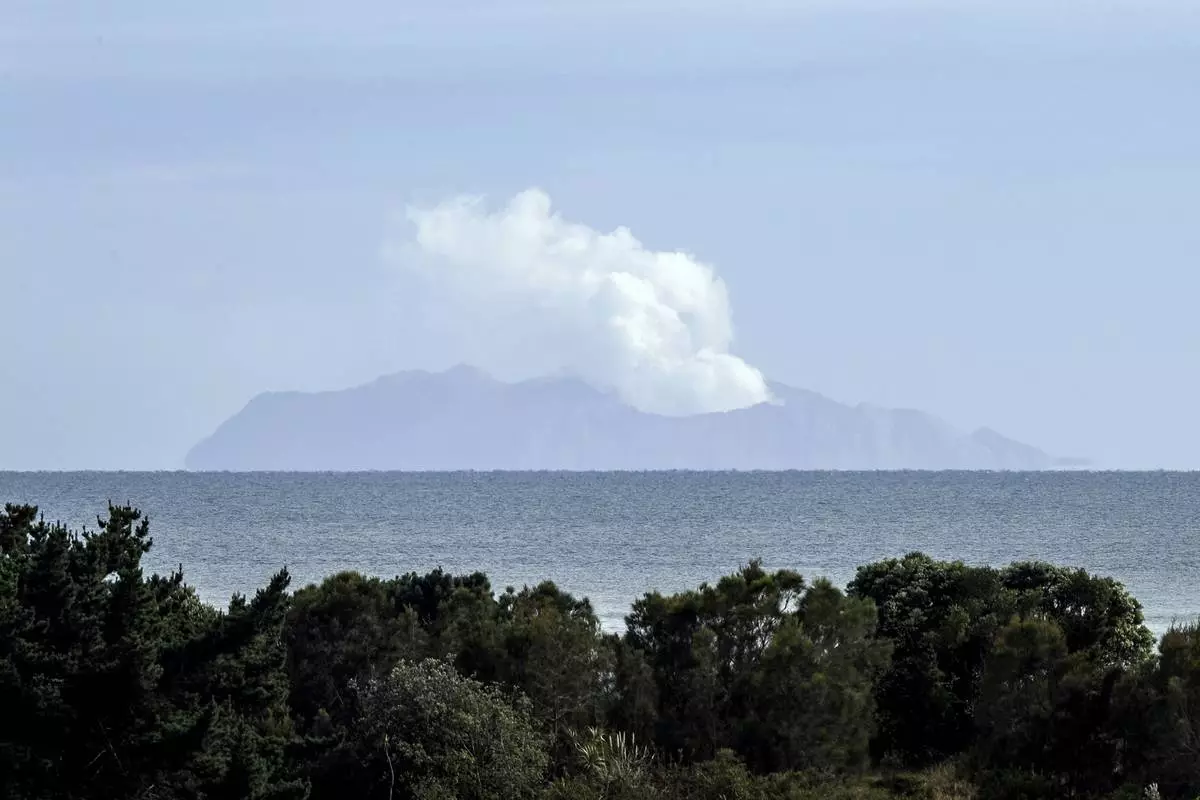
FILE - Plumes of steam rise above White Island off the coast of Whakatane, New Zealand, on Dec. 11, 2019, following a volcanic eruption on Dec. 9. (AP Photo/Mark Baker, File)
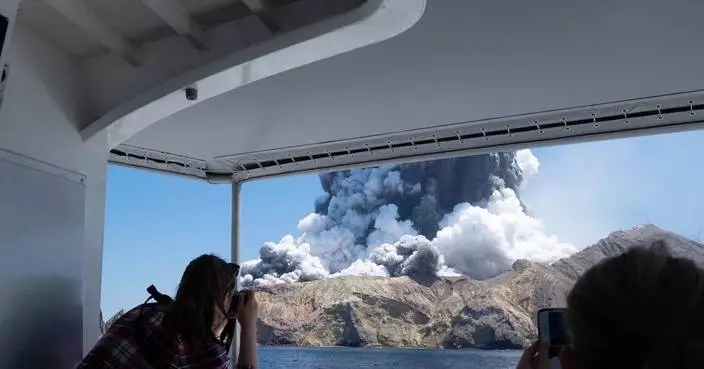
A judge will decide if owners of a New Zealand volcano site where 22 died were unjustly convicted
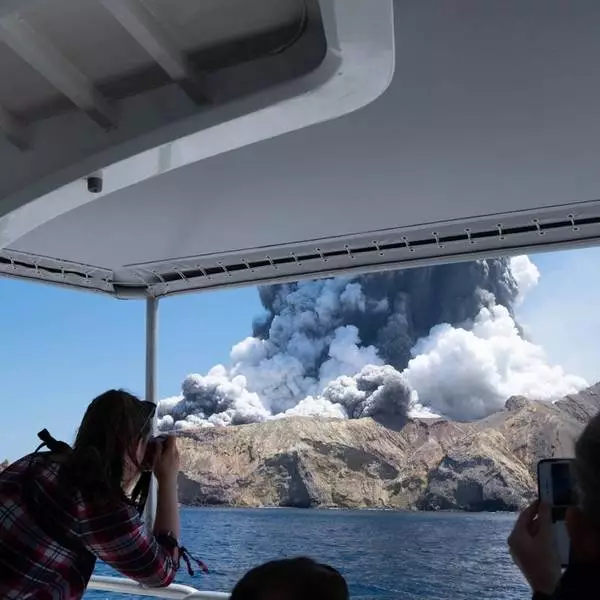
A judge will decide if owners of a New Zealand volcano site where 22 died were unjustly convicted
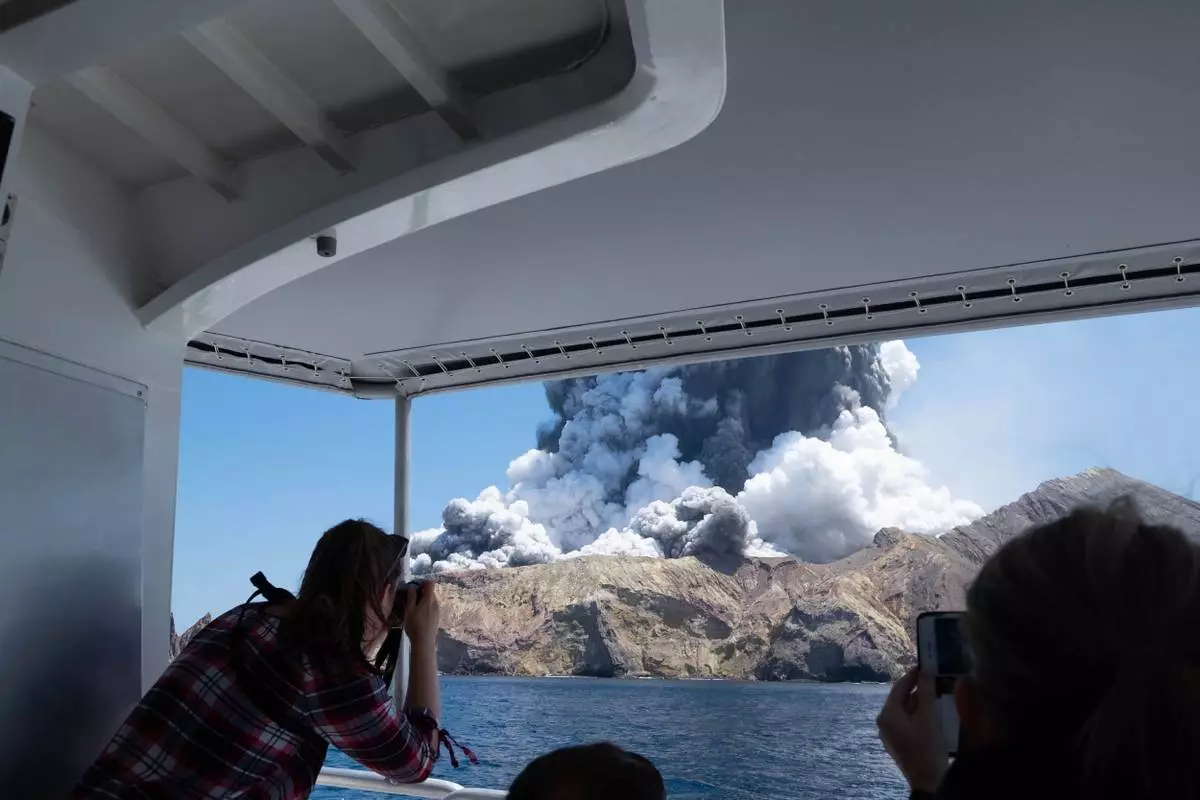
FILE - In photo provided by Michael Schade, tourists on a boat look at the eruption of the volcano on White Island, New Zealand, Dec. 9, 2019. (Michael Schade via AP, File)
SAVANNAH, Ga. (AP) — Survivors of a deadly walkway collapse at a state-run ferry dock on a Georgia island said Thursday that the government should help them pay for funerals for the seven people who died as well as medical bills and mental health counseling for those who lived.
Lawmakers on the Georgia Senate's Urban Affairs Committee heard from four people who were at the dock on Sapelo Island on Oct. 19 when a metal gangway snapped in the middle, sending dozens of people plunging into the water.
Among them was Yvonne Brockington of Jacksonville, Florida, who had arranged for more than 50 members of her club for older adults to visit the island during an annual cultural festival organized by its tiny Gullah-Geechee community of Black slave descendants.
Brockington said she was waiting with others to board an afternoon ferry off the island when she suddenly felt as if she was in a falling elevator. When she stopped suddenly, she felt both of her legs break. While bystanders used a rope to pull Brockington to safety, four members of her club perished.
“The psychological effect, I don't know if it will ever go away, but we definitely need help,” Brockington told lawmakers via video conference from her hospital bed. “It should not have happened. The state of Georgia owes us more than resources. They owe us an apology, and they need to make sure it never happens again.”
Other survivors told the meeting in Atlanta that the traumatic day still haunts them.
Darrel Jenkins, who pulled two people from the water but never learned whether they lived or died, said he continues to have nightmares and asks himself: “What about the people that might not have lived? Could I have done more?”
Regina Brinson said her 79-year-old uncle, Isaiah Thomas, drowned after she had to pry his clutching fingers from her shirt to avoid being dragged underwater herself.
“We need mental health support, financial support, resources to ensure that the survivors and their families have what they need to start recovery,” Brinson said.
The dock on Sapelo Island is operated by the state Department of Natural Resources, which manages the daily ferry service to and from the mainland.
The agency says about 700 people visited Oct. 19 for Cultural Day, a celebration of the tiny Hogg Hummock community founded by emancipated slaves after the Civil War. Hogg Hummock is one of the few Gullah-Geechee communities remaining in the South, where slaves who worked isolated island plantations retained much of their African heritage.
Mawuli Davis, an attorney for some of the people injured in the collapse, told lawmakers his clients have been contacted by state investigators for interviews but not by anyone offering assistance.
Lawmakers said they agree that the state should do more to assist the victims. But how much influence they will have isn't clear: The Senate Urban Affairs Committee is made up of six Democrats, while Republicans control the legislature and the governor's office.
“The state has responsibility,” said Sen. Donzella James, an Atlanta Democrat and the committee's chairperson. “We’re having this hearing to find out what it is exactly they're responsible for.”
The Department of Natural Resources, with assistance from the Georgia Bureau of Investigation, is investigating what caused the collapse. But victims' lawyers have said they don't trust the state agency to investigate itself, and last week Attorney General Chris Carr said he had called in an engineering firm to conduct an independent, parallel investigation.
No one from the Department of Natural Resources spoke before the committee Thursday.
Last weekend the department offered free counseling services to residents of Sapelo Island as well as on the mainland in McIntosh County. It said in a news release that “ongoing mental health resources will be provided to those in need” and that Natural Resources Commissioner Walter Rabon contacted families of those killed and “shared a phone number with them should they need anything.”
The news release also included a hyperlink to an online form that injured people can fill out to file a liability claim with the state.
A Department of Natural Resources spokesperson did not immediately respond to an email message seeking more information on how it is assisting victims.
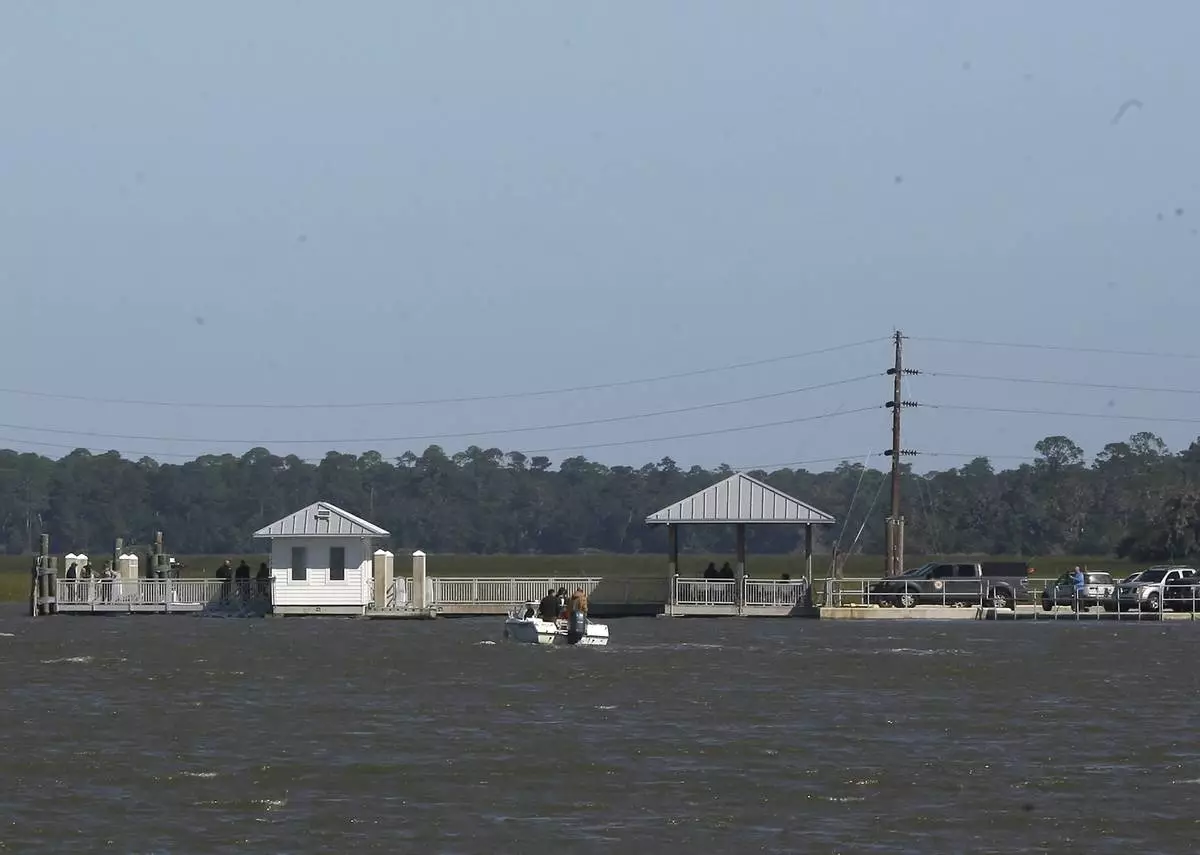
A portion of the gangway which collapsed Saturday afternoon remains visible on Sapelo Island in McIntosh county, Ga., Sunday, Oct. 20, 2024. (AP Photo/Lewis Levine)
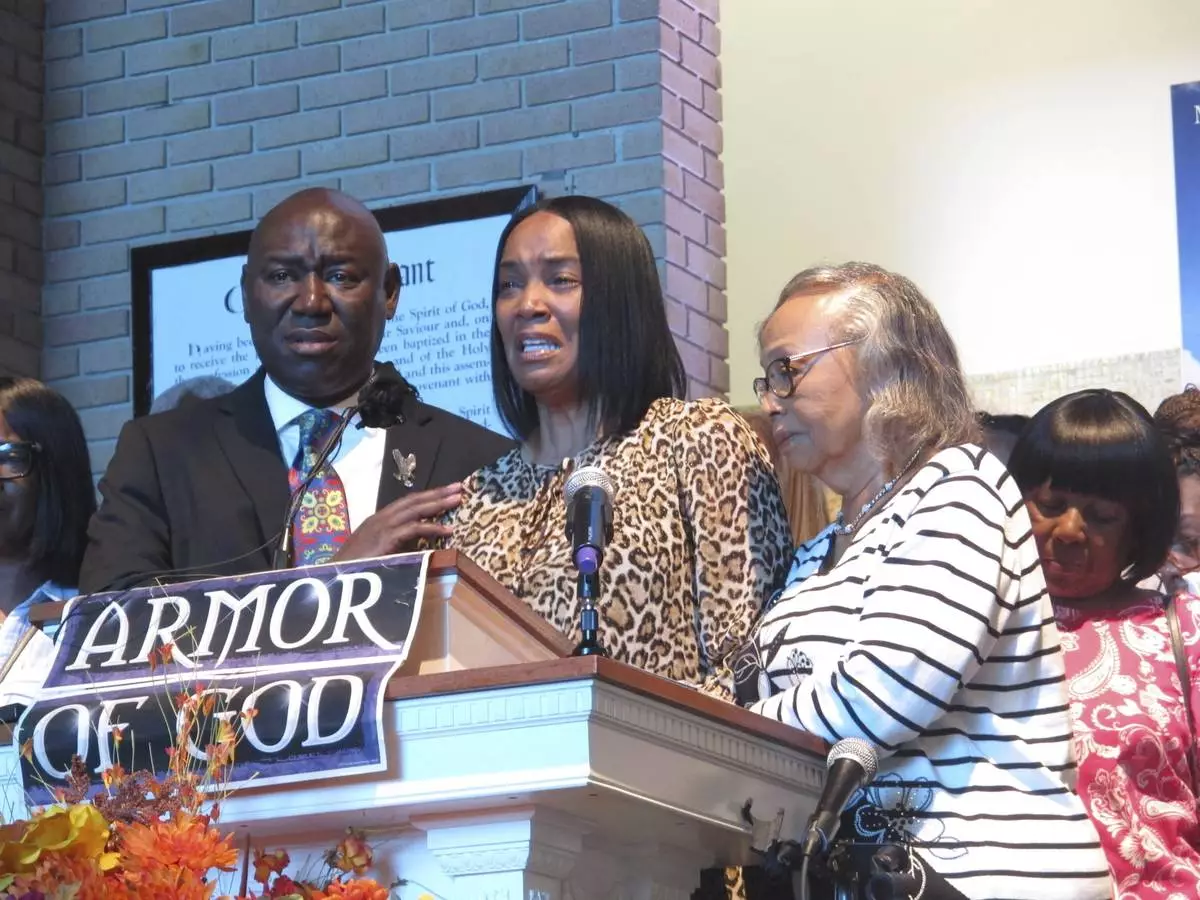
Regina Brinson, center, weeps at a news conference Tuesday, Oct. 22, 2024, while speaking alongside her mother, Katrena Alexander and attorney Ben Crump during a news conference in Jacksonville, Fla. Crump represents families of three of the seven people killed when a ferry dock walkway collapsed on Sapelo Island, Ga., on Saturday, Oct. 19. (AP Photo/Russ Bynum)
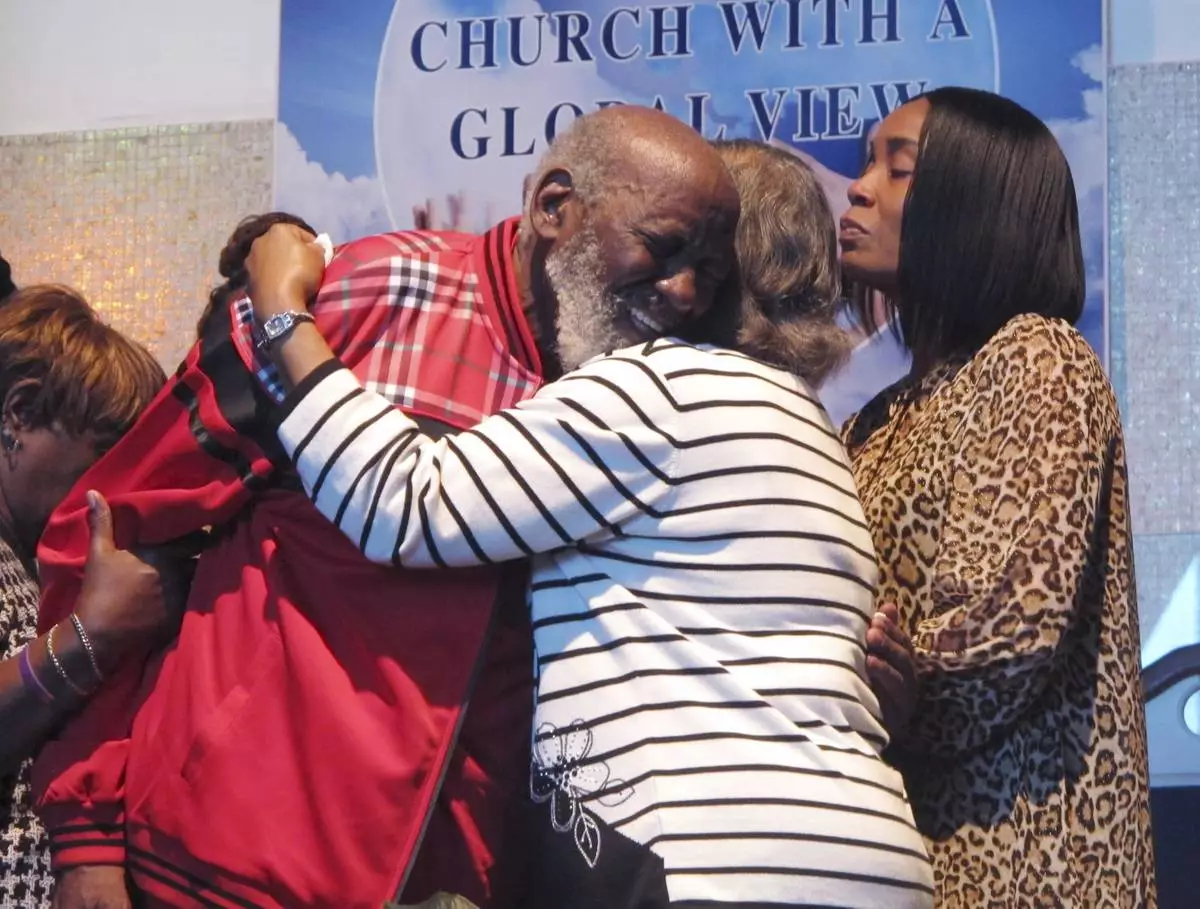
Wilbert Gardner, left, hugs Katrena Alexander while Alexander's daughter, Regina Brinson, right, looks on during a news conference Tuesday, Oct. 22, 2024, in Jacksonville, Fla, A dock gangway collapse happened as people were leaving a cultural festival on Sapelo Island, Georgia, on Saturday, Oct. 19, 2024. Alexander's brother, Isaiah Thomas, was among the dead. Gardner had a friend who was hospitalized with injuries. (AP Photo/Russ Bynum)
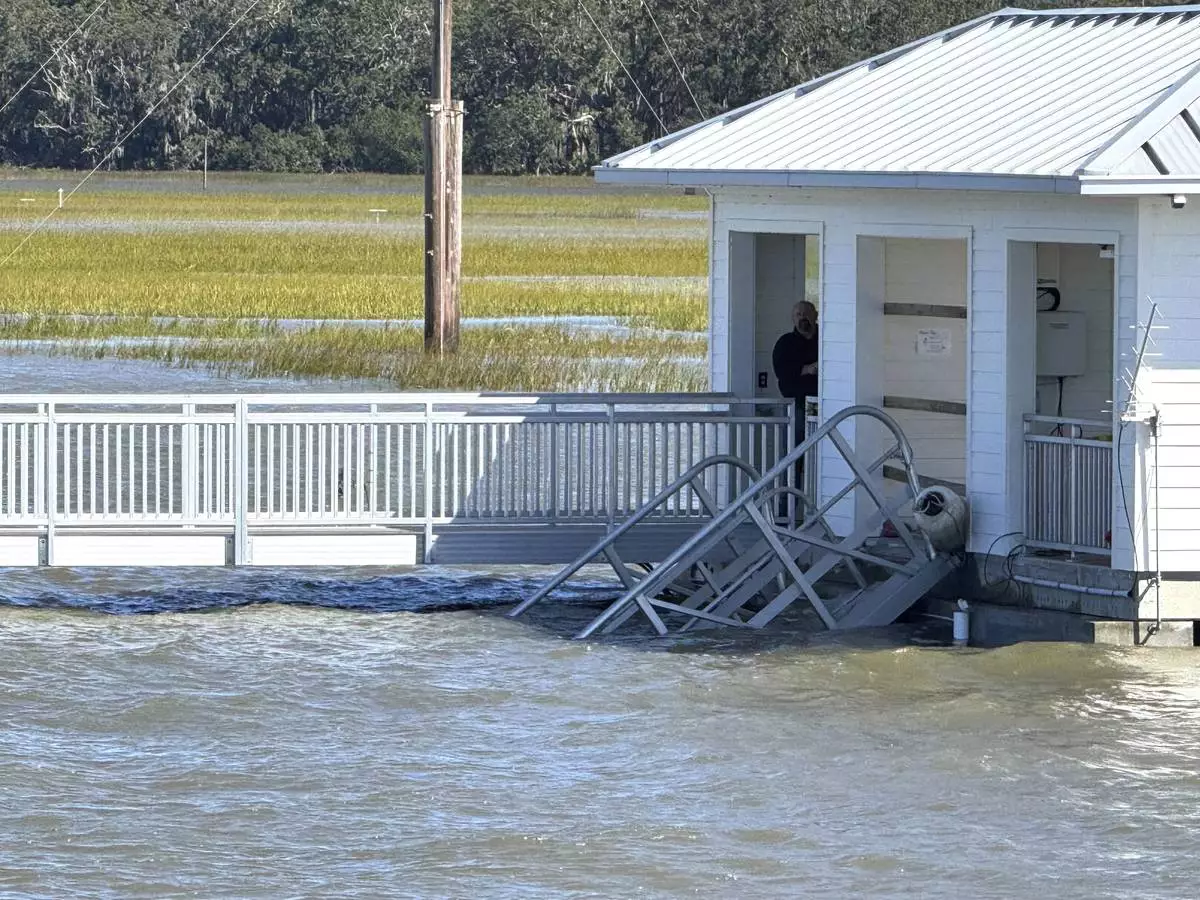
FILE - A portion of the collapsed gangway remains visible on Sapelo Island in McIntosh County, Ga., on Sunday, Oct. 20, 2024. (AP Photo/Lewis Levine, File)












